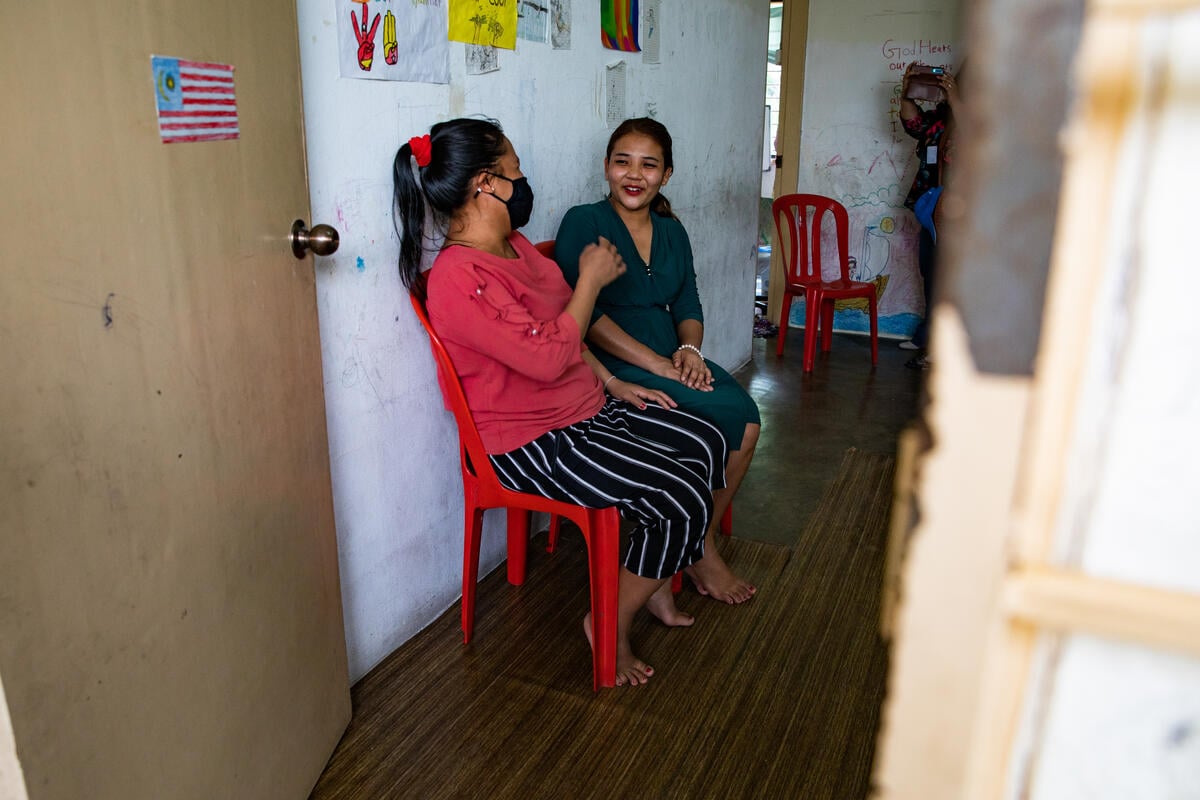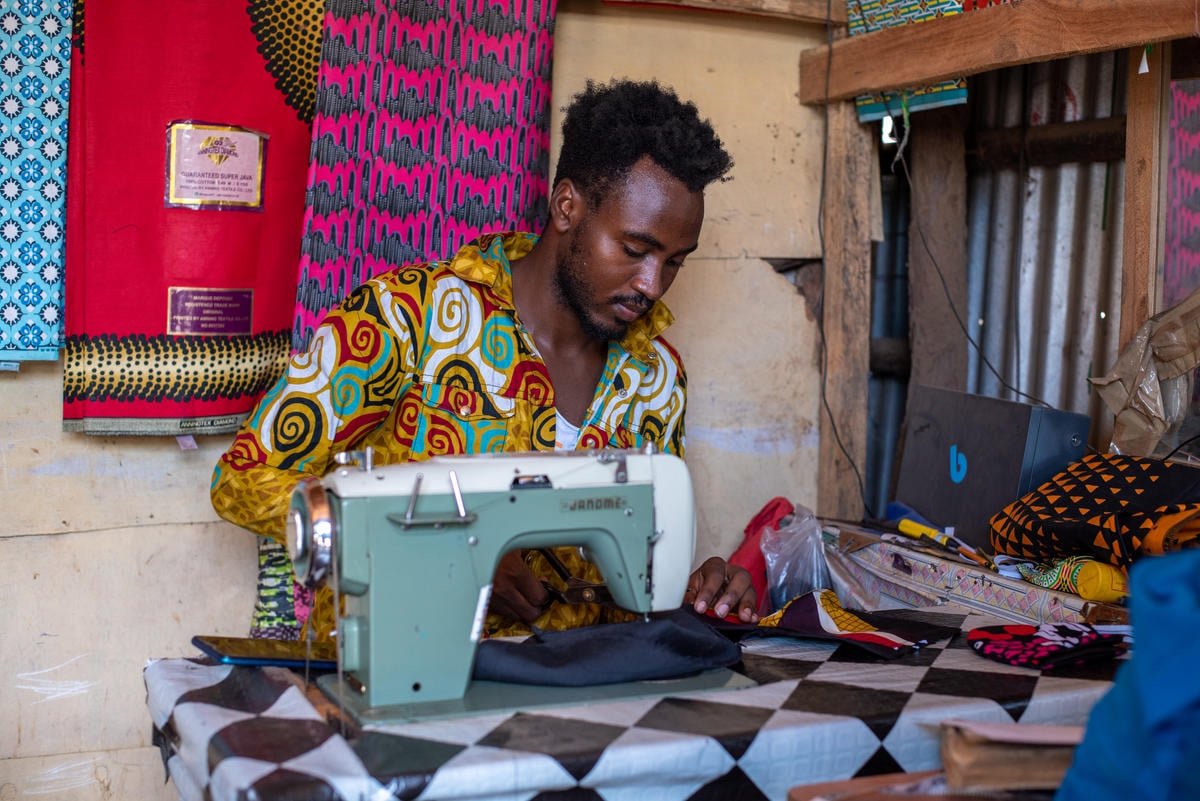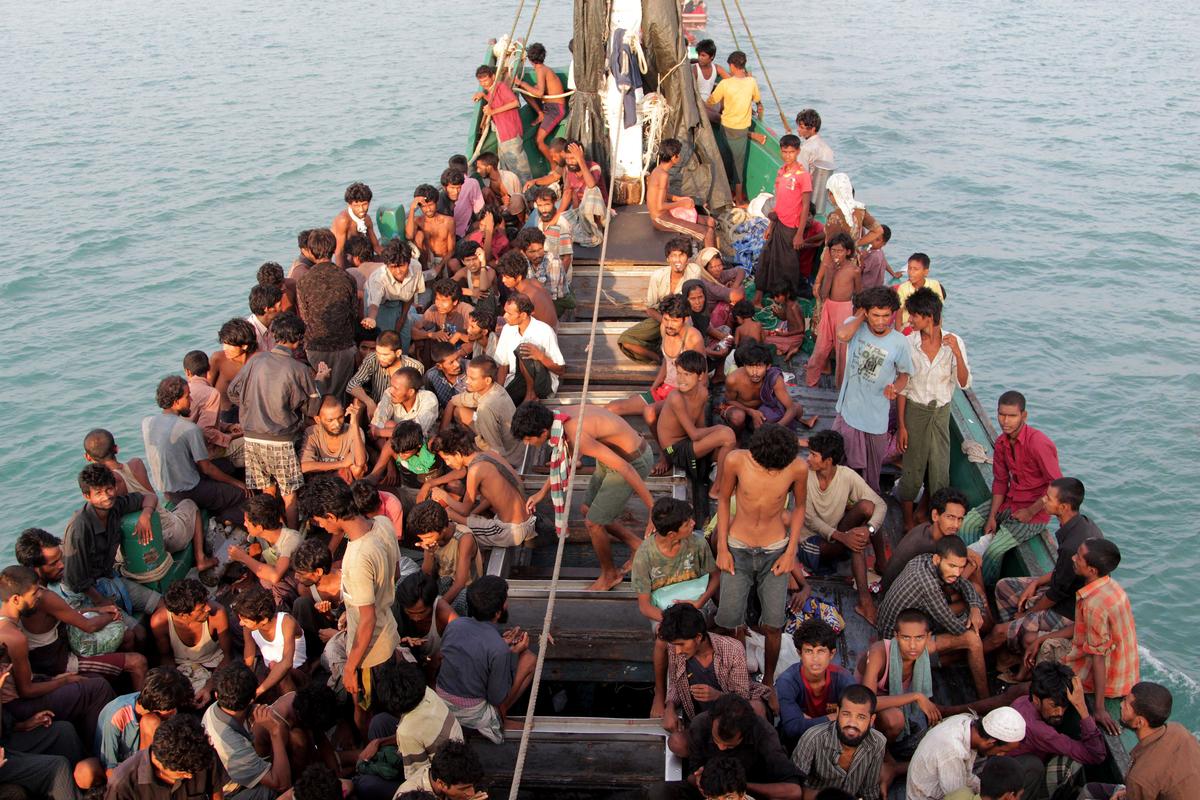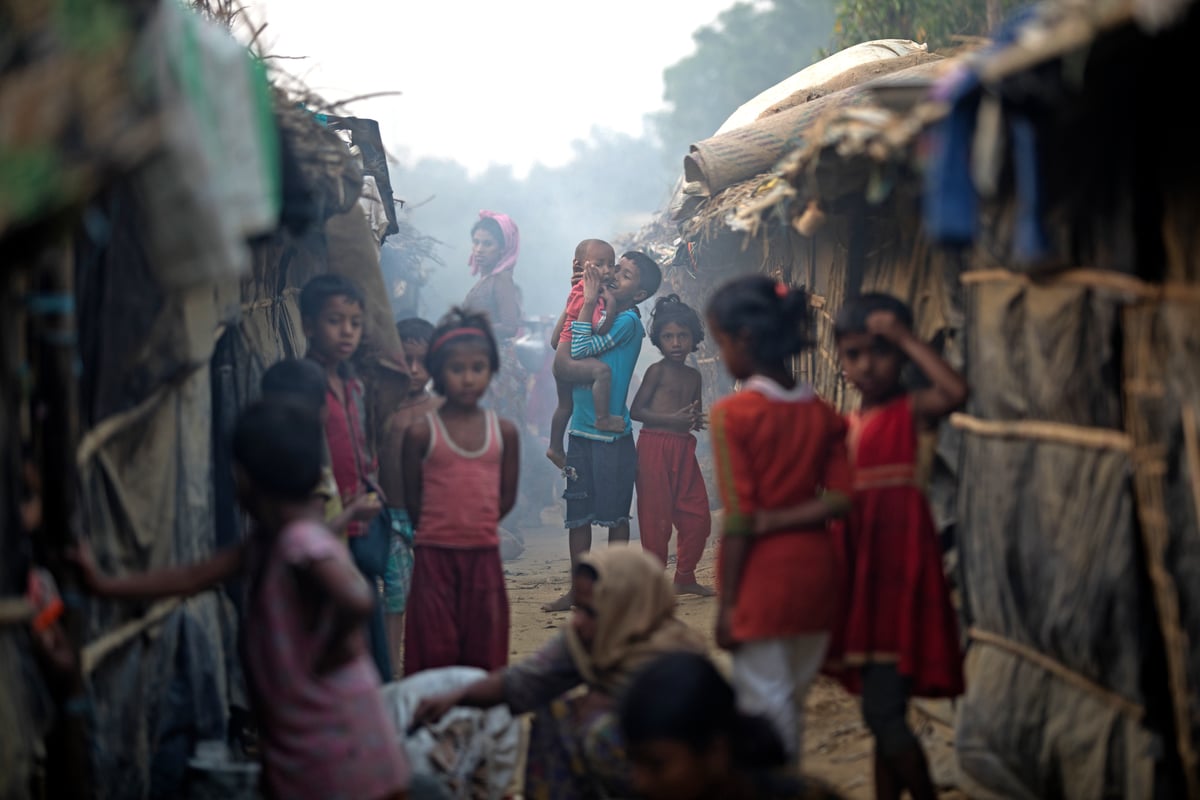Refugee project seeks to sweep Malaysians off their feet
Refugee project seeks to sweep Malaysians off their feet

KUALA LUMPUR, Malaysia, April 4 (UNHCR) - Doing housework on a weekend is a dreaded chore at best. Why then would someone spend their day off cleaning up after others?
Ask Thomas, a refugee leader who on a recent weekend led some 50 refugees from Myanmar to Kuala Lumpur's Wangsa Permai area. Wearing bright green vests that proclaimed "Refugees Care for Malaysia," they walked with brooms, rakes and garbage bags in the back lanes of a housing area. Undeterred by the scorching heat, they cleaned gutters, cleared garbage and pulled out weeds.
They were part of a neighbourhood clean-up initiative funded by the UN refugee agency and aimed at changing the perception of the local community towards refugees.
"Malaysians complained that refugees are littering, spitting betel nut juice on the pavements, and are noisy and disorderly when they get drunk," said Thomas. "The local people were getting very upset, and there was a lot of tension between refugees and the locals. We did not want the situation to become worse."
There are some 100,000 refugee men, women, and children registered with UNHCR in Malaysia, living in towns and cities across the country, in close proximity to Malaysian communities.
Since 2011, UNHCR through its Social Protection Fund (SPF) has worked with various refugee communities on peaceful co-existence projects, like the neighbourhood clean-up, to help address friction between local communities and refugees living close together.
One source of friction was the misconception that refugees were littering and destroying public property. "In areas where locals, refugees, and immigrants live close to each other, local communities commonly blame foreigners for problems in the neighbourhood," said Letchimi Doraisamy, the UNHCR officer in charge of the SPF.
"The neighbourhood clean-up projects show that refugees care about Malaysia and the neighbourhoods they live in. Regardless of who caused the problems, they want to be part of the solution in making these neighbourhoods pleasant to live in."
Since it began, dozens of refugee communities in the greater Kuala Lumpur area have participated in neighbourhood clean-ups. Some communities have taken it further by establishing night watches to curb the drunken and disorderly behaviour of some refugees which locals perceived as threatening.
The first community clean-up was held by the Myanmar refugees of the Chin ethnicity in the Loke Yew area of Kuala Lumpur.
The coordinator, Kennedy, said they wanted to demonstrate that refugees were not a threat to local communities and can contribute to the society they live in. "Our efforts paid off, because after a few weeks of clean-up, the locals living here began smiling at us and were friendlier," said Kennedy.
Joshua is a community leader of the Myanmar refugees of the Kachin ethnicity living in the Setapak area of Kuala Lumpur. "We had problems with Malaysian bullies in the flats where we live. They would ride the elevator with our people and beat them, rob them or just say bad things," said Joshua. "After we started the clean-ups, it was easier for us to speak to the residents' association about the bullying, and we received less harassment."
One clear benefit of the initiative is when local communities take note of the efforts.
In the Cheras area of Kuala Lumpur, Malaysian Muhammad Basir resides in a block of flats where a small community of refugees lives closely to Malaysians. He said initially there were fights and drunken and disorderly behaviour when the refugee men got together in the evenings.
"We understand they were frustrated because they could not work," said Muhammad. "But since the clean-up and night watches, things have improved."
Muhammad and a group of a dozen or so locals support the refugees in the clean-up by giving breakfast, refreshments, and joining in the clean-up. "Even refugee children help to clean the neighbourhood. There have not been many locals joining in, let alone children. We respect refugees for this hard work they put in," said Muhammad.
Back in Wangsa Permai, Thomas is realistic on how much more effort is needed. "We know there will be problems because our culture is different from Malaysians'," he said. "Slowly, we hope the locals will no longer hold ill-feelings towards us, but embrace us as members of the neighbourhood. It takes time for people to change, but we are trying."
By Yante Ismail in Kuala Lumpur, Malaysia








